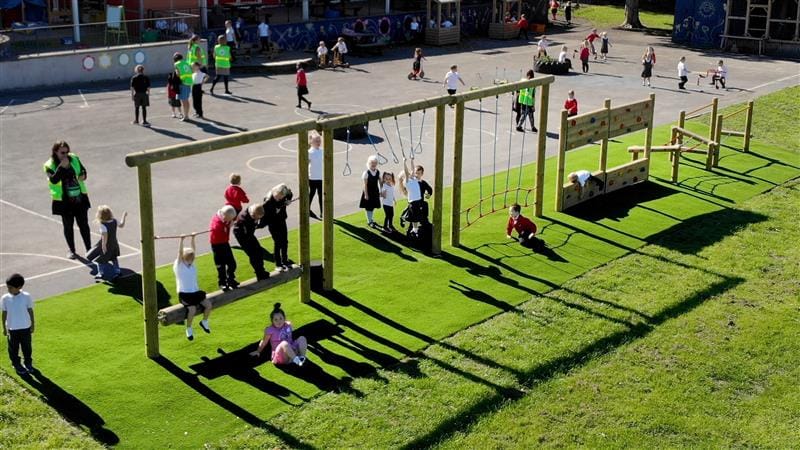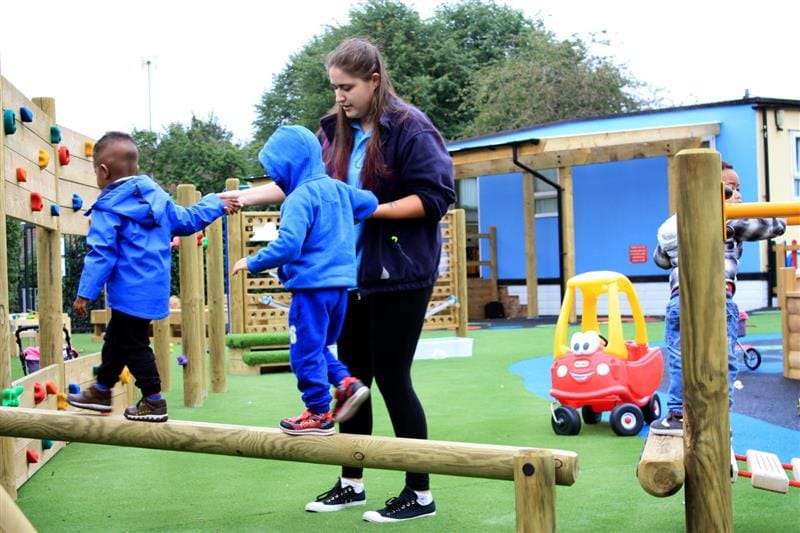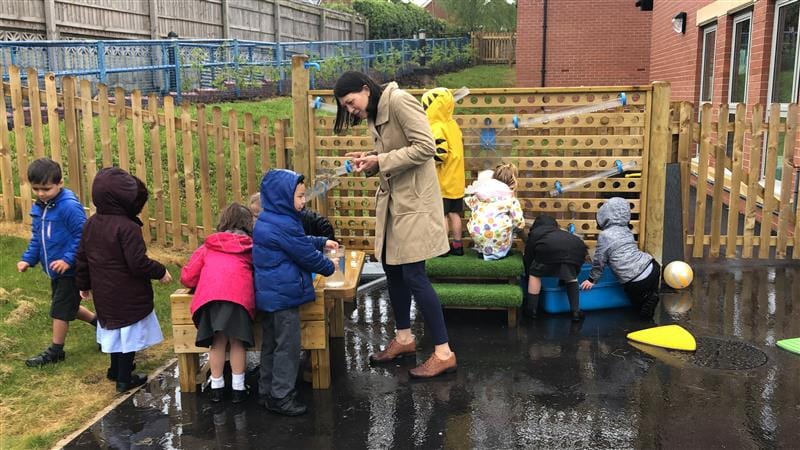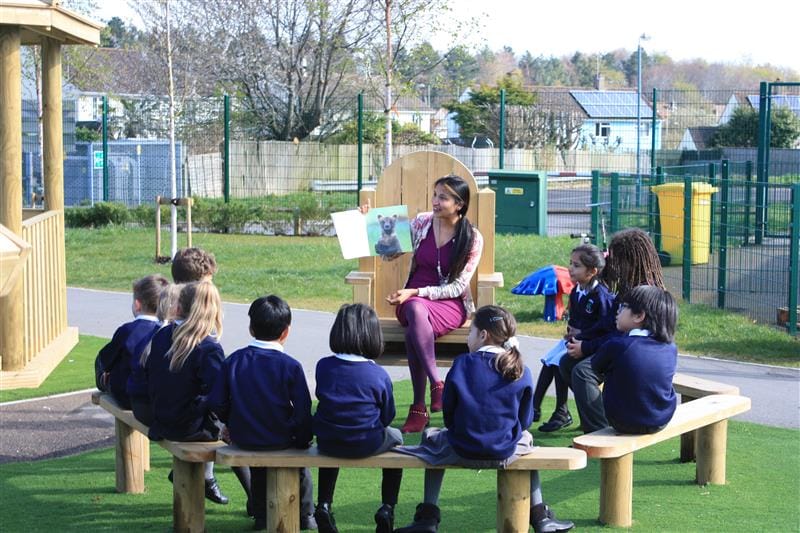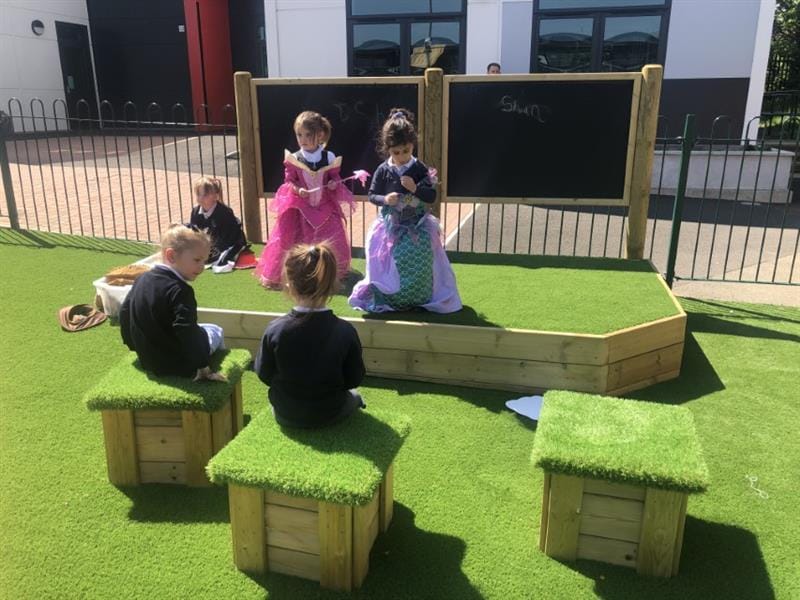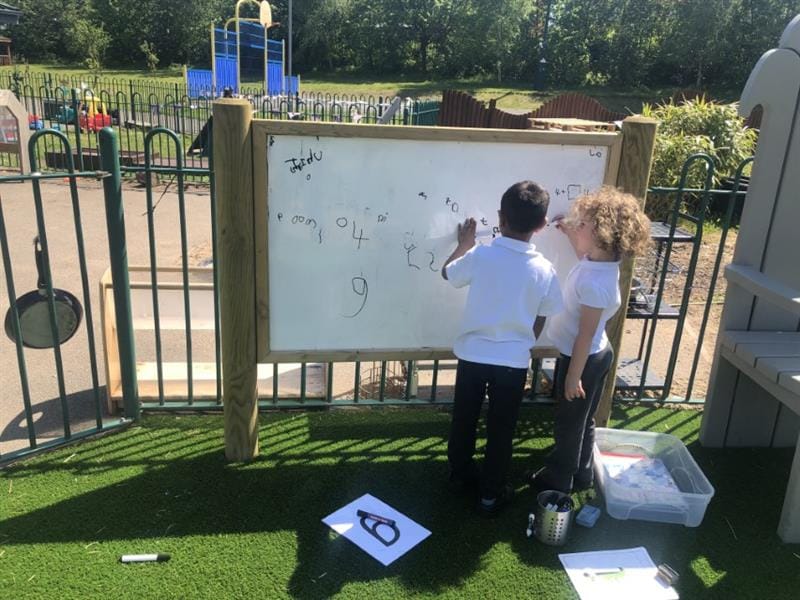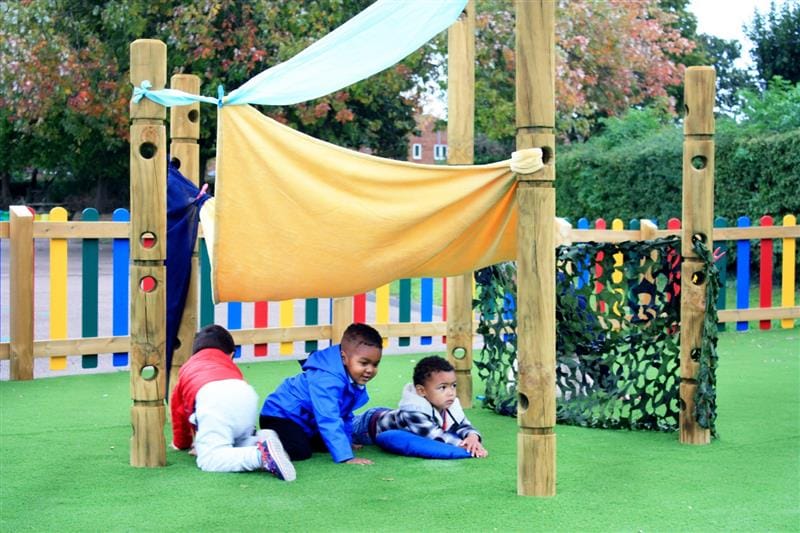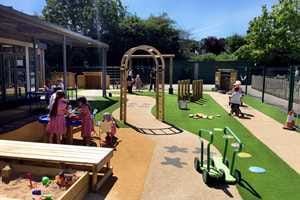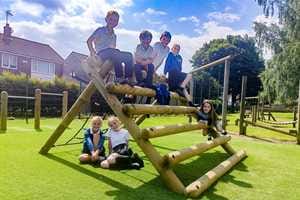
Lesson Ideas and Activities
Improve Children's Critical Thinking Skills On The Playground With These 5 Ideas
Perhaps the most effective way to foster critical thinking skills is to teach those skills. Explicitly. (Abrami et al. 2008)
Critical thinking skills are arguably the most important means to equip children for the future and to turn them into proficient problem solvers in today’s fast-changing world.
When teaching children the art of critical thinking, it’s best to use a variety of amusing and simulating strategies, to support a higher level of thinking when making decisions.
To think critically, children must believe thinking is fun and consider lots of ways at looking for solutions.
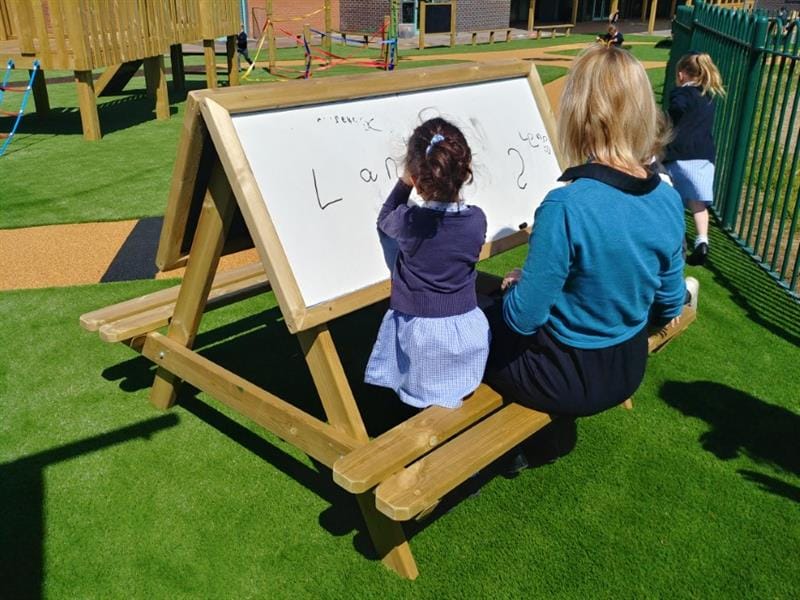
Although critical thinking skills don’t completely mature until adolescence, the basics for good thinking progresses in childhood. Research has shown that children who are taught critical thinking skills have better language comprehension, problem-solving and possibly higher IQs than their classmates.
Therefore we have highlighted 5 playground activities to develop critical thinking skills to support independent thinking and decision-making:
1. Variety of Play Opportunities
Critical thinking frequently occurs when children have time to practise making choices, plan their time, or create from nothing. It’s no secret that children love to play!
The playground is vastly resourceful when it comes to providing open-ended opportunities and hands-on experiences to explore cause and effect.
It can also be mode for exploring and enhancing knowledge on science, technology, engineering and mathematics (STEM).
The Water Wall and Damming Station aids children to explore and investigate the most effective ways of stopping the flow of water using sand, bark, stones or mud. Equally, children can work together to guide the water down the water wall channels, to see scientific concepts such as flow and motion come to life.
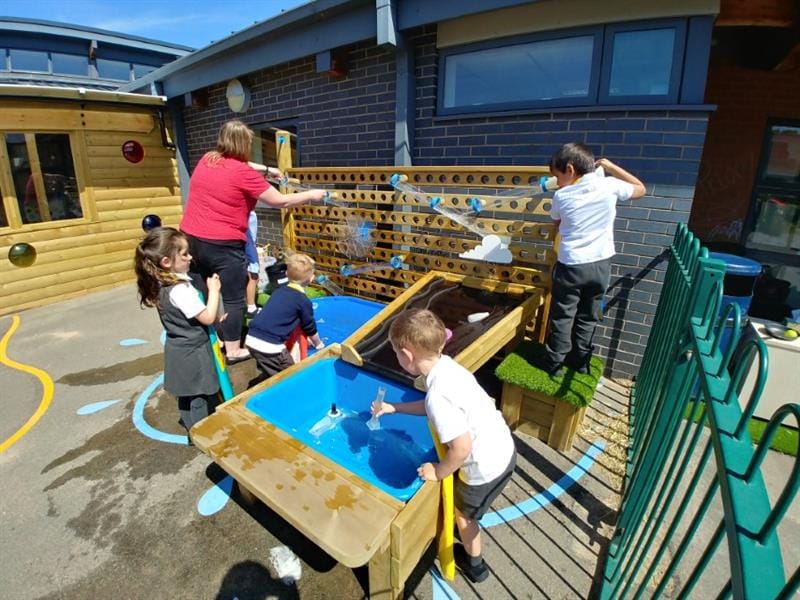
2. Scaffolding Children’s Play
Scaffolding is a key notion to support children’s education (Vygotsky, 1978). It allows them to progress their current level of understanding to a more advanced one. Much like a temporary support system for a building, when the task is complete and the building can stand alone, the support is removed.
Scaffolding children’s play is similar because the teacher (or more knowledgeable student) provides guidance and assistance to the child until they can master the task independently.
A great way to support children’s development and provide scaffolding in the playground is through observation. When a child sees a more competent peer model progressing through the crinkle crags climbing frame, they have an opportunity to see how it is done and explore different approaches.
Observation also allows children to take notes and develop their own confidence too. Seeing how a child navigates a trim trail provides insight into how to tackle various obstacles, for instance balancing on a balance beam themselves, thereby developing critical thinking skills to reach their own conclusions.
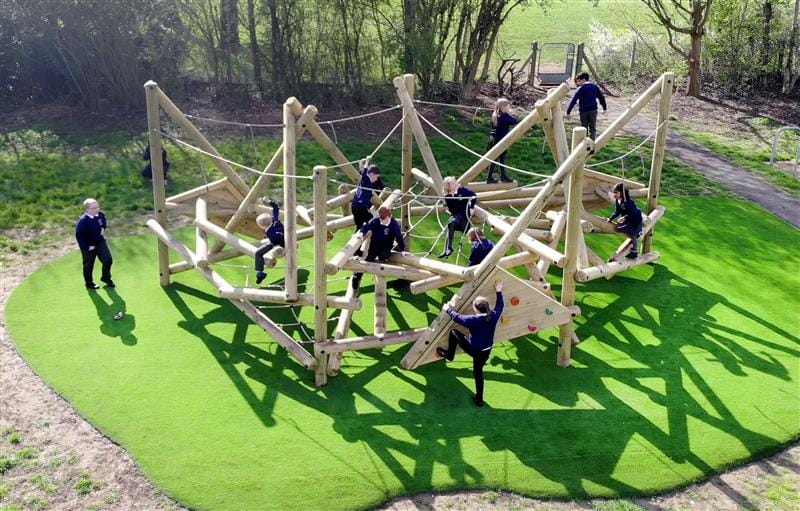
Similarly, the Gravity Table is ideal for child-led play. By setting up different sized balls, with each varying in shape, size and weight, children can learn about speed and density through exploration. As they think for themselves, new connections are formed in their brains.
The more times that they get to experience a problem and to find an effective solution, the stronger the connections become.
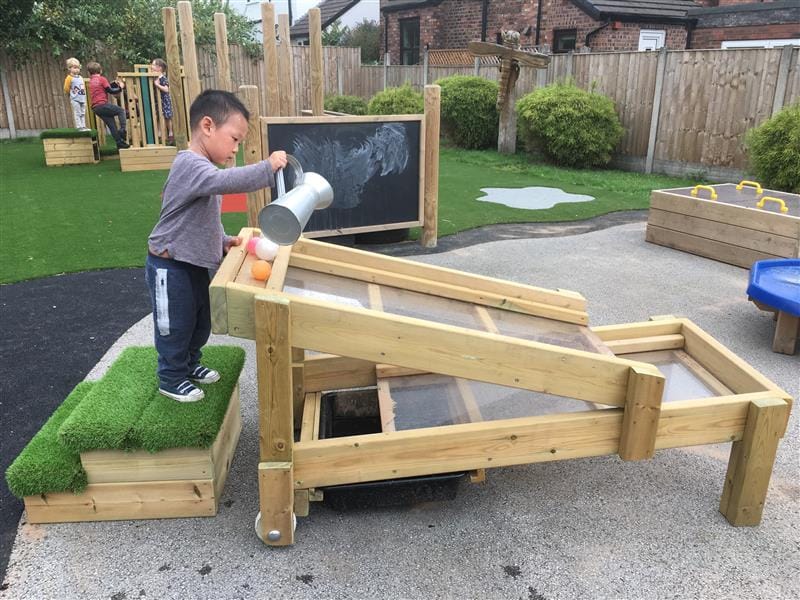
Or, use freestanding play equipment like the Play Builder sets. Allowing children to construct their own obstacle courses and structures, Play Builder kits are a great way for teachers to help children build independence and their physical skills.

3. Open-ended questions
The playground is a mystical place for children, with tons of questions waiting to be explored and answered. By asking them open-ended questions such as, “What do you think is happening?” or “Why do you think that?” Whether the responses are correct or incorrect, it doesn’t matter.
This helps children to hone problem solving skills, form hypotheses and think critically to explore all possible solutions to the questions raised.
Whilst primary school aged children might be too young to be taught formal logic, they can be taught to give explanations for their conclusions and discuss the reasons given by others.
A great activity would be to ask children to choose a ship made from different materials such as plastic, card, paper, foil and discuss which one they think will float and which ones will sink.
They can debate their answers in the Story Telling Circle before taking their chosen ship to the water table, to test out their theory. After the experiment has been completed, children can gather and the teacher can ask open-ended questions, requiring discovery and amalgamation of knowledge through critical thinking.
4. Group Play Activities
Critical thinking skills develop in collaborative play, where they can discuss issues and work together to solve problems. Role play is a particularly useful tool for practising critical thinking.
Children can work in pairs to act out two conflicting characters (perhaps chosen from a book they’ve read recently in class) on the Outdoor Performance Stage. Each child should be given an opportunity to discuss the different points of view in the argument.
With the final task being how they would reach a compromise and stop the conflict. Their peers can observe the performance and be asked open-ended questions too for perspective.
5. Communicating Through Art
Humans are characteristically visual learners. A fun way to encourage critical thinking in the playground is by using the outdoor white board or chalk board. Without using words, children should be asked to communicate their ideas to their friends using pictures alone.
As children must translate their ideas into pictures, they use an entirely different mental skill set, henceforth a great mode to get them to think critically.
Critical thinking skills in children start with being inquisitive, flexible, and open-minded. The playground is a limitless source for cognitive and social development. It delivers multiple opportunities for the neural pathways involved in thinking critically to become robust when children discuss a problem and clarify how they have reached a solution.
View our full range of educational playground equipment designed to meet the needs of schools and nurseries. Our Playground Consultants will work with your school to design a playground environment which suits your children and school’s needs. Contact Us for free, expert advice.

